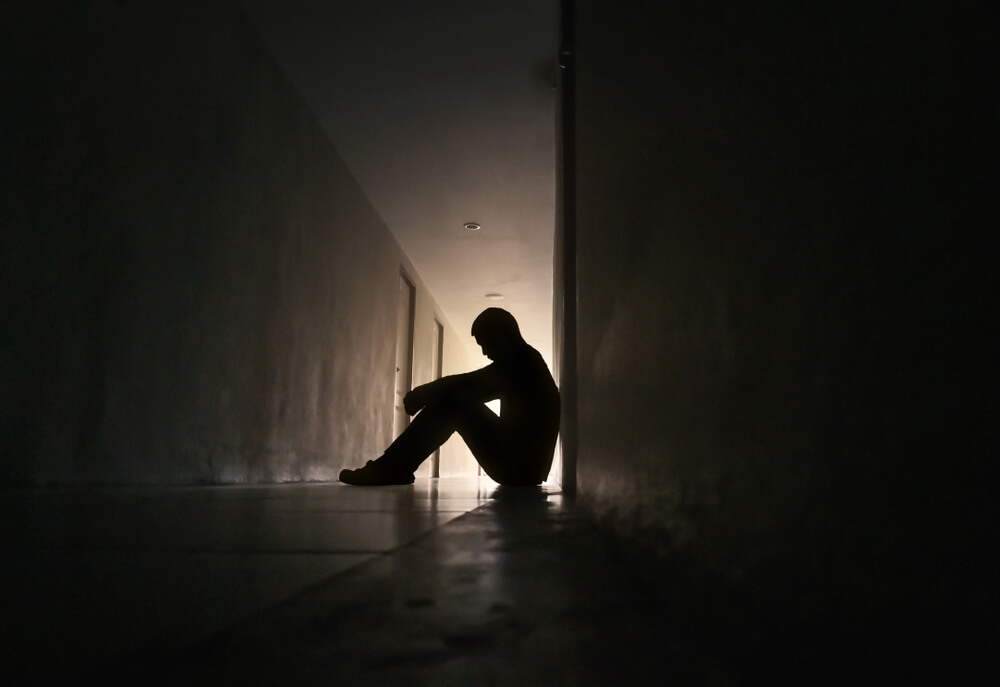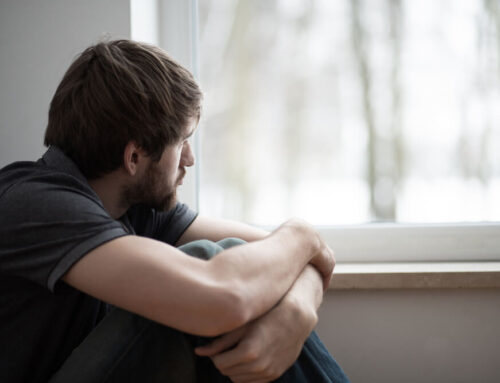Depression is a complex mental health condition that affects millions of people worldwide. It doesn’t discriminate by age, gender, or background, and its effects can be debilitating. The journey toward understanding and managing depression often begins with recognizing the early signs.
This blog post, from the mental health experts at Carreras Medical Center, aims to shed light on the early signs of depression, emphasizing the importance of early detection and offering guidance on what to do if you or someone you know may be experiencing these symptoms.
What Are the Early Signs of Depression?

Early signs of depression can be subtle and often go unnoticed or are brushed off as temporary emotional states. However, understanding these signs is crucial in order to intervene and seek help when needed. Let’s explore some of the common early signs of depression:
Persistent Sadness and Hopelessness
One of the most significant early signs of depression is an unrelenting feeling of sadness and hopelessness that doesn’t seem to lift, regardless of circumstances. If you find yourself feeling down most of the time for several weeks, it’s a clear indicator of a potential depressive state.
Loss of Interest or Pleasure
Depression often leads to a reduced interest in activities or hobbies that once brought joy and satisfaction. You might lose interest in socializing, hobbies, or even the most basic daily tasks.
Changes in Sleep Patterns
Noticeable changes in sleep patterns are another common sign. This can manifest as insomnia, where you find it difficult to fall asleep or stay asleep, or hypersomnia, where you feel the need to sleep excessively.
Weight or Appetite Changes
Significant fluctuations in weight or appetite are often associated with depression. You might experience a loss of appetite and weight or turn to overeating for comfort, leading to weight gain.
Fatigue and Low Energy
Feeling constantly tired and lacking the energy to complete everyday tasks is a sign of depression. You may feel physically and mentally drained, even after a full night’s sleep.
Irritability and Restlessness
Increased irritability, restlessness, and difficulty concentrating are early signs of depression. Simple tasks can become overwhelming, and your patience may wear thin.
Feelings of Guilt or Worthlessness
Depression often leads to overwhelming feelings of guilt, self-doubt, and worthlessness. You may constantly blame yourself for issues or berate yourself for perceived inadequacies.
Social Withdrawal
Depression can lead to social isolation. You may find yourself avoiding friends and family, canceling plans, or declining invitations. Isolating yourself from others is a clear sign that something may be amiss.
Physical Symptoms
Depression can manifest with various physical symptoms, such as headaches, stomach problems, and unexplained aches and pains. These symptoms often don’t have a clear physical cause but can be linked to emotional distress.
Suicidal Thoughts
Perhaps the most critical early sign of depression is the presence of suicidal thoughts or feelings. If you or someone you know is experiencing thoughts of self-harm or suicide, it is a medical emergency, and professional help must be sought immediately.
How to Know If You Are Depressed
Recognizing that you might be experiencing depression is a crucial first step toward seeking help and finding relief. Here are some signs to help you know if you are depressed:
- Consistency: Depression symptoms are not fleeting; they persist for weeks or even months.
- Interference with Daily Life: If your symptoms interfere with your daily life, relationships, and work, it’s an indicator of depression.
- Intensity: The intensity of your feelings and emotions is a crucial factor. If your sadness, anxiety, or irritability is overwhelming and unmanageable, it may be a sign of depression.
- Duration: The duration of your symptoms matters. Early signs of depression may start mildly but can grow into a pervasive and long-lasting issue.
- Emotional and Physical Symptoms: The presence of both emotional and physical symptoms, like changes in appetite, sleep patterns, and unexplained physical discomfort, may point to depression.
Signs You’re Depressed: It’s Okay to Seek Help

If you’re recognizing the signs of depression in yourself or someone you care about, it’s crucial to understand that seeking help is a sign of strength, not weakness. Depression is a treatable condition, and early intervention can make a significant difference in the recovery process. Here are some essential steps to consider:
Talk to Someone You Trust
Reach out to a close friend, family member, or a trusted colleague. Sharing your feelings with someone you trust can be an essential first step toward getting help.
Consult a Healthcare Provider
Schedule an appointment with a healthcare provider, such as your primary care physician or a mental health professional. They can provide an accurate diagnosis and recommend appropriate treatment options. Mental health counseling can help you better understand your thinking patterns and can teach you ways to tackle depressive thoughts.
Therapy and Counseling
Psychotherapy, including cognitive-behavioral therapy (CBT) and interpersonal therapy, is an effective treatment for depression. It provides strategies to manage symptoms and work through underlying issues.
Medication
In some cases, healthcare providers may recommend antidepressant medications to help manage symptoms. These medications can be especially useful for moderate to severe depression.
Lifestyle Changes
Making positive lifestyle changes can have a profound impact on managing depression. Regular exercise, a balanced diet, and sufficient sleep can significantly improve mood and overall well-being.
Support Groups
Joining a support group can provide a sense of community and understanding from others who have experienced or are experiencing depression.
Self-Care
Prioritize self-care routines that promote mental and emotional well-being, such as meditation, relaxation exercises, and stress management techniques.
Keep a Journal
Consider keeping a journal to document your thoughts and feelings. This can help you track your emotions and recognize patterns and triggers for depressive episodes.
Mental Health Maintenance
Just as you maintain your physical health with regular check-ups, consider regular mental health check-ins, even when you’re feeling well. This proactive approach can help you identify and address issues early.
Conclusion
Recognizing the early signs of depression is the first step toward healing and recovery. It’s crucial to understand that depression is a medical condition that can affect anyone, and seeking help is a sign of strength. If you or someone you know is experiencing these signs, remember that professional assistance is available, and there is hope for a brighter, more fulfilling future.
That being said, if you are noticing telltale signs that you are depressed or even a loved one or friend, don’t forget to reach out for help. As a matter of fact, you can reach out to our experts at any time. We understand the importance of a shoulder you can lean on when times get troublesome.



